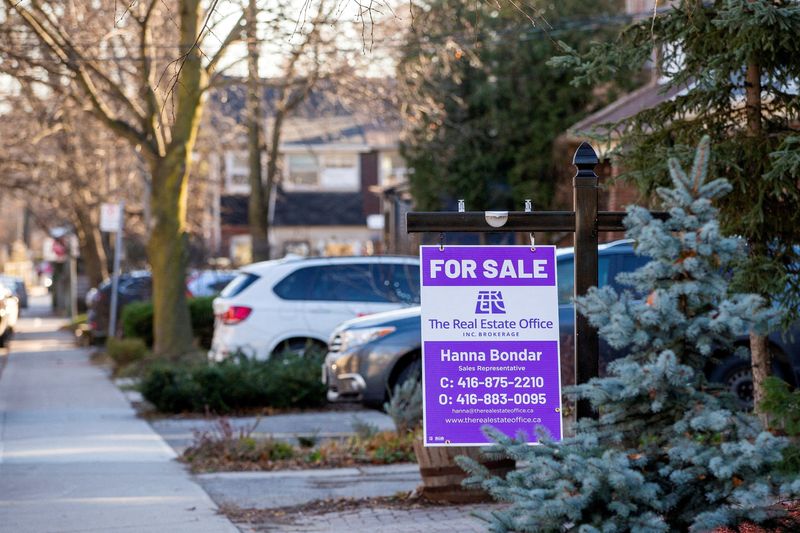By Nivedita Balu
TORONTO (Reuters) – More Canadian homeowners are considering switching to variable rate from fixed rate mortgages after an unusually large interest rate cut by the central bank on Wednesday, mortgage brokers said.
The Bank of Canada cut its benchmark policy interest rate by 50 basis points to 3.75%, giving some relief to homeowners after mortgage payments shot up in recent years and increased overall living costs.
Higher borrowing rates helped fuel a housing affordability crisis that has been exacerbated by a record influx of immigrants and not enough homes for them, hurting Prime Minister Justin Trudeau’s popularity.
Most mortgages in Canada renew every three or five years and amortize over 20 or 25 years, exposing Canadians to rising rates. In the United States, homeowners can enjoy a fixed rate for the entire life of a 15-year or 30-year mortgage.
Canadians predominantly have either fixed-rate mortgages, which are influenced by bond prices, or variable-rate mortgages, which benefit as policy rates decline.
Andy Hill, a mortgage broker in Vancouver and founder of mortgage rate comparison website EveryRate.ca, said more than a dozen clients reached out in the past week looking to make a switch from fixed to variable mortgages, as Canada’s largest rate cut since the COVID-19 pandemic was widely expected.
His calculations show switching would save on average C$4,500 ($3,252) for a mortgage of C$400,000, even after fines of up to C$4,800 to break the mortgage and switch.
While six large banks control the bulk of Canada’s roughly C$2 trillion mortgage market, other players include mortgage corporations. Credit unions also are competing for a share of the pie.
Mortgage brokers noted rising competition to retain clients as upcoming policy changes give consumers more flexibility to switch lenders.
Variable rate mortgages began to gain popularity earlier this year, as the central bank started cutting rates in June.
As of the first quarter, 12.9% of new mortgage borrowers opted for a variable-rate mortgage, up from a low of 4.2% in the third quarter of 2023, according to the most recent Bank of Canada data.
Vancouver-based mortgage broker Johnny Hoang said risk averse clients were opting for a short term variable rate mortgage, and would consider switching to a fixed rate when interest rates fall more.
Another mortgage broker in Toronto, Andrew Galea, said for every 10 clients on his list, half were new buyers or upsizing their homes, a third were looking at transferring an upcoming renewal and 20% were scouting for better rates.
WAITING ON THE SIDELINES
While the big banks lowered their prime rates to 5.95% on Wednesday, the lowest in about two years, many consumers are still waiting for deeper cuts to buy a house.
A survey by EveryRate.ca showed that 74% of Canadians considering buying or refinancing need policy rates to drop below 3% before they act.
“Given current trends, policy rates may not reach below 3% until late 2025, leaving many buyers and refinancers waiting on the sidelines,” Hill, the Vancouver-based broker, said.
Penelope Graham, a mortgage expert at Ratehub.ca, expects activity to pick up in the new year as the federal government introduces new mortgage policy reforms that make it easier to purchase a home for those taking out insured mortgages.
($1 = 1.3839 Canadian dollars)

